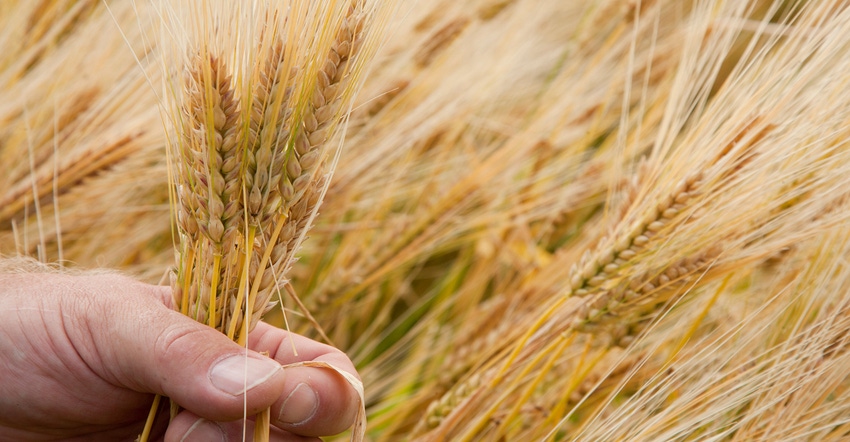
Only a handful of malting barleys on the American Malting Barley Association’s 2018 recommended malting barley varieties list would be good for Minnesota growers to grow.
“If farmers are interested in malting, they will definitely want to select a variety that the industry is currently sourcing from Minnesota and will likely consider contracting,” says Kevin Smith, University of Minnesota barley breeder. Smith also encourages growers to check out U-M's latest spring barley variety trials report.
AMBA-recommended two-row malting barleys for 2018 are: AAC Synergy, ABI Voyager, AC Metcalfe, CDC Copeland, Charles*, Conlon, Endeavor*, Expedition, Explorer, Harrington, Hockett, LCS Genie, Merit 57, Moravian 37, Moravian 69, ND Genesis, Newdale, Pinnacle, Propino, Scarlett and Wintmalt*.
AMBA-recommended six-row malting barleys for 2018 are: Celebration, Innovation, Lacey, Legacy, Quest, Thoroughbred* and Tradition.
Varieties marked with an asterisk(*) are winter barleys.
Smith says for Minnesota, two six-row barleys would be good: Lacey and Tradition.
“Of the two, Lacey performs better agronomically,” he says. “Innovation has also done well. Rasmusson has generally been the top-yielding variety, but the industry has not contracted it.”
There are not a lot of two-row barleys contracted in Minnesota, he adds.
“Currently, Pinnacle is probably the most popular. ND Genesis is newer and performs better in the field, but I am not sure where it stands from the maltster or brewer preference,” Smith says.
AMBA dropped two varieties from its 2017 list and added three varieties for 2018. Additions include three spring two-row varieties: Explorer, Newdale, and Propino. Explorer was developed by the French company Secobra Recherches, and has been grown in Europe, Asia and South America. Growers have had success with it in the Western U.S. and Upper Midwest, AMBA says. Newdale, which received full registration for Canada in 2001, is primarily grown in Maine. Propino, developed by Syngenta and recommended for brewing in the United Kingdom since 2010, has performed well in the Western U.S., the association reports.
AMBA no longer recommends the varieties CDC Meredith and Stellar ND.
About the Author(s)
You May Also Like






